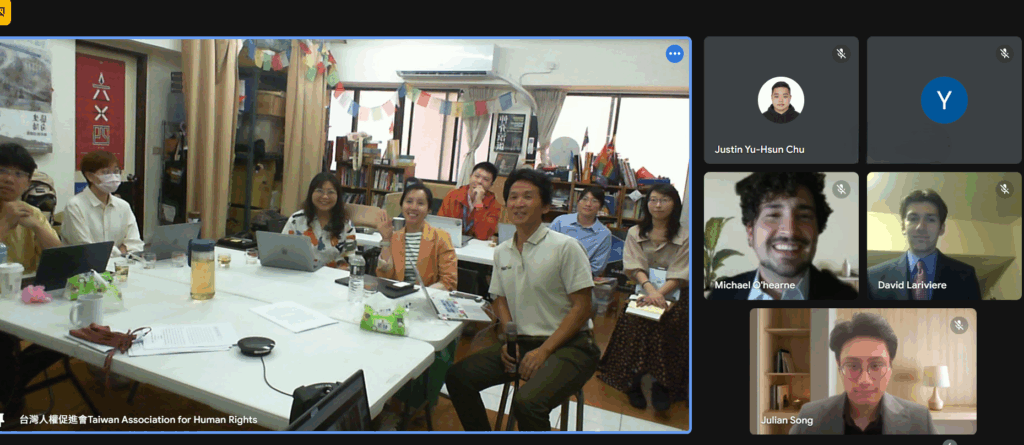Open Net Association and SAFEnet demand that Article 15 of Draft Government Regulation on Post, Telecommunication and Broadcasting Sectors[1] (Implementing Regulation of Law No. 11/2020) be removed in order to protect network neutrality and thereby protect people’s freedom of speech and right to access the internet.
Article 15 states in relevant parts:
(1) Business player in Indonesia and/or foreign business player which conducts business through the Internet in Indonesia or provides services to users within the Indonesian jurisdiction in providing its services must be done through a partnership with telecommunication network providers and/or telecommunication service providers in Indonesia based on the principles of fairness, equitable, and nondiscriminatory based on the applicable laws. [omitted]
(6) In fulfilling the quality of service to its users and / or for the national interest, Telecommunication Network operators and / or Telecommunication service providers can carry out traffic management.
Network neutrality is a rule that ISPs should treat all data traffic equally regardless of content, application, and device. A corollary of the rule is that delivery of data should not be prioritized, made, or throttled for payment.[2] This is why the telecom regulators of the US and EU have explicitly refused or banned ISPs from charging content providers data delivery fees.[3] This rule established a radically decentralized communication network called the internet that has allowed all individuals around the world to communicate with one another freely without having to rely on or paying any gatekeeper for data delivery and thereby became a foundation for political democratization and equitable economic opportunities.
This draft regulation favors business actors rather than citizens’ rights to access information, said Unggul Sagena, Head of the Access to Information Division at the Southeast Asia Freedom of Expression Network (SAFEnet):
“The new draft Government Regulation on Post, Telecommunication and Broadcasting Sectors (RPP Postelsiar) has the potential to cultivate violation of net neutrality which will be detrimental to the principle of justice and equal opportunity for citizens to access information whenever it is left to the market mechanism. Instead of favors for business actors, The State should ensure that everyone has the same access to information whenever they use the internet at any ISP they connected to. Don’t let the conflict between Telkom Group and Netflix repeat again in the future.”[4]
With the aforesaid Article 15 of the Draft, Indonesia will be doing exactly the opposite to the international standard by requiring all content providers to enter into “a partnership” with telecom operators (point 1), otherwise the telecom operators may “manage” traffic related to those providers. (point 6). Such ‘partnership’ is likely to assist telecom operators in negotiating toward monetary compensation for delivering (faster and safer) data traffic to the telcos’ end users where the power to manage traffic will be used as a leverage. Especially concerning is that Article 15 seems to apply even to content providers not connected to the telecoms, who will be forced into paying the “termination fees” of the pre-internet telephone age that BEREC the European telecom regulator specifically warned against.
South Korea had a similar law. Since 2016, the laws attempting to provide compensation for relaying data packets, which disincentivizes ISPs from hosting popular content, and on top of that, in 2020, the new “traffic stabilization” law was passed to require all content providers to take measures to “stabilize data traffic”.
As a result, the cost of Internet access in South Korea has become several times higher than that of Europe and the U.S.[5] (e.g., Seoul’s weighted median transit price/Mbps 8 times that of Paris according to Telegeography). Many small to midsize Korean startups are abandoning the home country to flee the high internet access fee. The consumers suffer from lack of content diversity. This prompted many civil society organizations in and out of Korea to submit a letter to the country’s science ministry, alerting to this problem. (http://old.opennetkorea.org/en/wp/3122, http://old.opennetkorea.org/en/wp/wp-content/uploads/2020/09/Open-Letter-on-South-Korean-Net-Neutrality-violations.pdf.)
K.S. Park, Executive Director, Open Net Association said the following about Article 15:
“This is a race to the bottom. Indonesia, like South Korea, has an oligopoly in the ISP market which means that there is a real danger that ISPs will use these laws to impose even greater financial burdens on the internet ecosystem, weakening content diversity and online dialogue. If Indonesian government is interested in nurturing digital economy, it should legislate a law for net neutrality, not against it. Article 15 is clearly against it.”
Therefore, we demand that Article 15 be removed from the Draft so that the civilizational significance of the internet be restored and preserved in Indonesia and not compromising the digital rights of citizens.
For media information, please contact:
- Southeast Asia Freedom of Expression Network (SAFEnet), hotline +628119223375 or in**@********or.id
- Open Net Association, Signal +82 10 8809 4057 or ky**********@******ac.kr
[1] https://uu-ciptakerja.go.id/wp-content/uploads/2021/02/RPP-tentang-Pos-Telekomunikasi-Dan-Penyiaran.pdf
[2] This rule does not ban charging the cost of making and maintaining physical connection, transit or in some cases of peering.
[3] BEREC’s comments on the ETNO proposal for ITU/WCIT or similar initiatives along these lines, 14 November 2012, BoR (12) 120 rev.1; BEREC, An assessment of IP interconnection in the context of Net Neutrality, Document number: BoR (12) 130; FCC 2015 Open Internet Order, paras. 113, 120 (superseded by the Trump Administration in 2018 but expected to be revived under the Biden Administration); California Net Neutrality Act Section 3101(a)(3) (“It shall be unlawful for a fixed Internet service provider to engage in . . requiring consideration, monetary or otherwise, from an edge provider. . , in exchange for . . .delivering Internet traffic to, and carrying Internet traffic from, the Internet service provider’s end users.”)
[4] Indonesia state-owned telco Telkom Group blocked Netflix services from 7 January 2016 until 7 July 2020 to protect its affiliate services iFlix/Hooq. https://www.cnbcindonesia.com/tech/20191228204813-37-126272/telkom-group-blokir-netflix-3-tahun-ternyata-ini-alasannya
[5] https://www.unescap.org/sites/default/files/Breaking%20the%20barriers%20of%20Broadband%20in%20Asia-Pacific%2C%20LIRNEasia.pdf


0 Comments